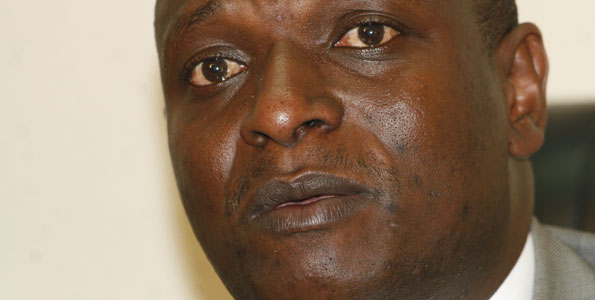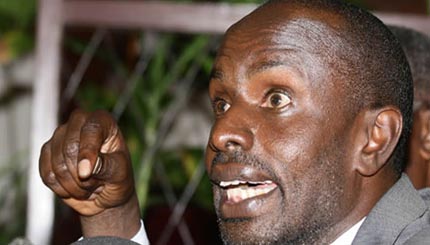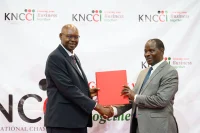Tanzania yesterday confiscated the passports of top Kenyan officials, including Energy Cabinet Secretary Charles Keter, and denied them access to the port of Tanga.
However, a delegation from Uganda, led by Energy minister Irene Muloni, was allowed to proceed with the tour. The top Kenyan officials had began their journey in Lamu, where they inspected the proposed Lamu port before flying to the port of Tanga in Tanzania.
The trip was part of their mission to unlock a deadlock between Kenya and Uganda over whether a proposed oil pipeline to export Uganda’s oil would pass through Kenya or Tanzania. Wednesday’s incident turned the quest for Kenya to retain the crude pipeline ugly.
The Tanzanian officials took away the travel documents of Mr Keter, Petroleum Principal Secretary Andrew Kamau, his Energy counterpart, Mr Joseph Njoroge and Lapsset CEO Sylvester Kasuku, as they attempted to enter the Tanga Port in the company of the Ugandan delegation.
Tanzanian authorities were reportedly paying back Kenya’s failure to invite them to Lamu, or to the talks held at State House, Nairobi, between presidents Uhuru Kenyatta and Uganda’s Yoweri Museveni on Monday.
Only Ugandan and oil firm representatives were invited to the Nairobi meeting, even though Tanzania has expressed interest in having the pipeline run through its territory.
Mr Kamau confirmed that the passports of the Kenyan officials were confiscated when they arrived in Tanga to inspect the port, which has been proposed as a potential exit point for Uganda’s crude oil. “We are basically captives here. They have refused to give us back our passports for about one hour. They have also refused us entry into the port of Tanga,” the PS told the Daily Nation in a telephone interview. “They only allowed the Uganda delegation into the port.”
Their passports were returned after more than one hour.
The Vienna Convention of 1961 protects all accredited diplomats. Diplomatic passport holders arriving at a foreign port are usually given certain privileges to pass through. This is aimed at protecting foreign diplomats from unnecessary impediments in the conduct of their business.
However, it is the duty of a sending Foreign ministry, through the nearest embassy, to alert the host country of a visiting delegation. Wednesday, it was not clear whether Kenya had alerted Tanzania of the impending tour.
During the Monday meeting, Kenya and Uganda failed to agree on the Northern Pipeline, from Hoima in Uganda through Lokichar, to Lamu, when President Museveni raised questions about the possible delay in the construction of the pipeline, the Lamu port and the security situation in Kenya.



















































![Pula Co-Founders and Co-CEOs, Rose Goslinga & Thomas Njeru. Pula provides agricultural insurance and digital products to help smallholder farmers manage climate risks, improve farming practices and increase their incomes. [ Photo / Courtesy ]](https://businesstoday.co.ke/wp-content/uploads/2021/01/Pula-Co-Founders-and-Co-CEOs-Thomas-Njeru-Rose-Goslinga.jpg)




























































Leave a comment